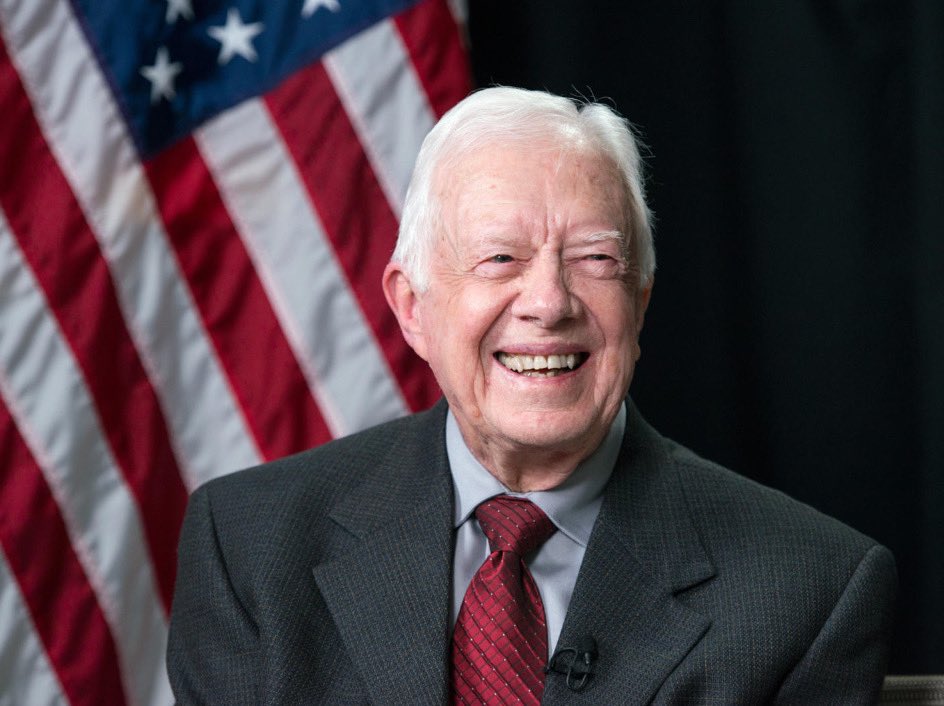The Life and Legacy of Jimmy Carter
James Earl “Jimmy” Carter Jr., the 39th President of the United States, is a figure of profound historical and humanitarian significance. Born on October 1, 1924, in the small town of Plains, Georgia, Carter’s journey from humble beginnings to the Oval Office, and his enduring legacy as a global humanitarian, paints a vivid portrait of a life dedicated to service.
Early Life and Education
Jimmy Carter grew up in a modest, rural environment. His father, James Earl Carter Sr., was a farmer and businessman, and his mother, Lillian Gordy Carter, a registered nurse, instilled in him a sense of compassion and duty. As a child, Carter worked on his family’s peanut farm, experiencing firsthand the challenges of agricultural life.
Academically inclined, Carter excelled in school and earned an appointment to the United States Naval Academy in Annapolis, Maryland. Graduating in 1946, he embarked on a career as a naval officer, specializing in submarine operations. His service included working on the development of nuclear submarines under Admiral Hyman Rickover, an experience that deeply shaped his analytical and disciplined approach to problem-solving.
Political Beginnings
After his father’s death in 1953, Carter returned to Plains to take over the family farm. Witnessing the struggles of local farmers and the entrenched racial segregation in the South, he became increasingly drawn to politics. Carter’s political career began in earnest when he was elected to the Georgia State Senate in 1962.
In 1970, Carter successfully ran for governor of Georgia. As governor, he gained national attention for his progressive stance on civil rights, declaring in his inaugural address that “The time for racial discrimination is over.” This marked a significant shift in Southern politics during a tumultuous period in American history.
The Road to the Presidency
Carter announced his candidacy for the presidency in 1974. Initially considered an outsider, his campaign emphasized themes of honesty, transparency, and a promise to restore trust in government following the Watergate scandal. His background as a farmer and devout Christian resonated with many Americans, particularly in the South and Midwest.
In 1976, Carter defeated incumbent President Gerald Ford in a close election. His victory was a testament to his ability to connect with voters seeking change and integrity in leadership.
Presidency (1977–1981)
Carter’s presidency was marked by both notable achievements and significant challenges. His administration focused on human rights, energy policy, and environmental conservation. Some of the key highlights include:
- Human Rights Advocacy: Carter placed human rights at the forefront of U.S. foreign policy, emphasizing the importance of supporting democratic ideals globally.
- Camp David Accords: Perhaps his most celebrated achievement, Carter brokered a historic peace agreement between Egypt and Israel in 1978, earning widespread international acclaim.
- Energy Policy: Carter championed energy conservation and renewable energy, creating the Department of Energy and emphasizing the need to reduce U.S. dependence on foreign oil.
However, his presidency also faced numerous difficulties:
- Economic Challenges: High inflation, unemployment, and the energy crisis created economic turbulence during his term.
- Iran Hostage Crisis: The 1979 seizure of 52 American hostages in Tehran overshadowed Carter’s final year in office. Despite his tireless efforts, the hostages were not released until after he left office.
In 1980, Carter lost his re-election bid to Ronald Reagan, largely due to the economic struggles and the public’s perception of his handling of the Iran crisis.
Post-Presidency and Humanitarian Work
Jimmy Carter’s post-presidency is widely regarded as one of the most impactful in American history. In 1982, he founded The Carter Center, a nonpartisan organization dedicated to advancing peace, health, and democracy worldwide. Through the Center, Carter has:
- Fought diseases like Guinea worm and river blindness, contributing to significant global health improvements.
- Promoted free and fair elections in over 100 countries.
- Advocated for human rights and conflict resolution in areas of political turmoil.
Carter also became a prolific author, penning numerous books on topics ranging from politics to spirituality. His 2002 Nobel Peace Prize recognized his decades-long commitment to resolving conflicts and promoting social justice.
Personal Life and Legacy
Jimmy Carter’s partnership with his wife, Rosalynn Carter, has been a cornerstone of his life. Married since 1946, the Carters have worked together on countless humanitarian projects. Their dedication to each other and to public service is an enduring aspect of their legacy.
Carter’s longevity and continued activism have inspired millions. From building homes with Habitat for Humanity well into his 90s to teaching Sunday school in Plains, he has remained deeply connected to his community and values.
Conclusion
Jimmy Carter’s life is a testament to the power of humility, service, and perseverance. While his presidency faced significant challenges, his post-presidential contributions have solidified his reputation as one of the most influential and compassionate leaders in modern history. Carter’s unwavering commitment to improving the human condition serves as a guiding light for future generations, embodying the ideals of leadership, empathy, and global citizenship.

